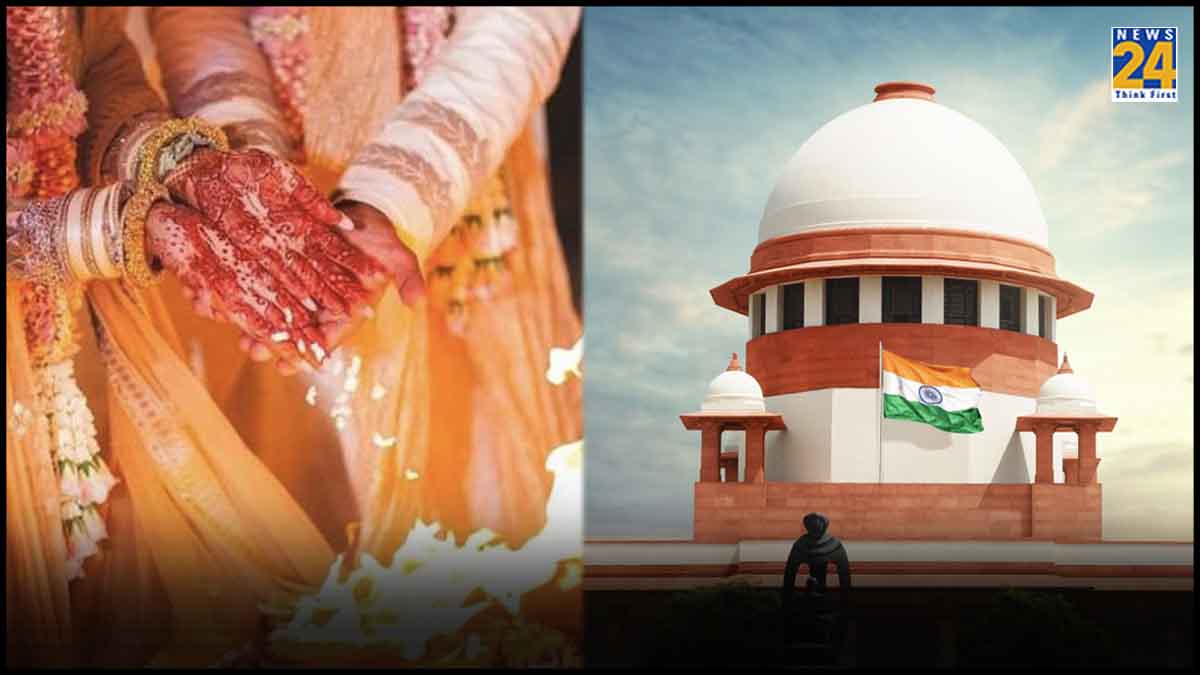The Supreme Court has stated that in observing a Hindu marriage as a sacred process rather than a mere “song and dance” and “wining and dining” event, strict adherence to the customary rituals and ceremonies prescribed under the Hindu Marriage Act is necessary. Failure to follow these rituals diligently, strictly, and religiously can lead to the invalidation of a marriage even after its registration.
Also Read: Lok Sabha 2024: BJP Secures 28 Seats In Maharashtra Seat Allocation
According to a bench of the Supreme Court, compliance with the ceremonies listed in Section 7 of the Act is necessary for the validity of a Hindu marriage. If the parties do not perform these ceremonies, the law does not recognize the marriage as valid. Section 7 specifies that either party involved can solemnize a Hindu marriage based on their customary rites and ceremonies.
The Supreme Court has observed that people should not treat a Hindu marriage as a “song and dance”, “wining and dining” event, or a commercial transaction. They emphasized that the law cannot acknowledge such marriages without a valid ceremony as per the Hindu Marriage Act. Justices B V Nagarathna and Augustine George Masih, in a bench, stated that a Hindu marriage is a ‘samskara’ and a sacrament, deserving recognition as a valuable institution within Indian society.
What did the Supreme Court say about Hindu marriage?
In a recent order regarding two trained commercial pilots seeking a divorce decree without conducting a valid Hindu marriage ceremony, the bench encouraged young men and women to “deliberate deeply on the institution of marriage even before they enter into it, and understand the sacredness of this institution in Indian society.”
The bench stated that people should not view a marriage as a platform for “song and dance” or “wining and dining,” nor should they use it as an opportunity to demand or exchange dowry and gifts under undue pressure, as this could potentially lead to the initiation of criminal proceedings later on. They emphasized that a marriage is not a commercial transaction but a solemn and foundational event that establishes a relationship between a man and a woman, granting them the status of husband and wife and forming the basic unit of an evolving family in Indian society.
Bench describes marriage as sacred
The bench described marriage as sacred because it establishes a lifelong, dignified, equal, consensual, and healthy union between two individuals. They noted that marriage supports procreation, strengthens family units, and promotes solidarity among various communities.
The bench criticized young men and women for claiming to be married without conducting a valid marriage ceremony as per the provisions of the Hindu Marriage Act. They specifically highlighted the current case where the parties intended to marry at a later date.
The court declared the order on April 19
In its order dated April 19, the bench declared that the law will not recognize a Hindu marriage if it does not adhere to the relevant rites or ceremonies, such as the ‘saptapadi’ (where the groom and bride jointly take seven steps before the sacred fire).
The bench observed the Hindu Wedding Rituals
The bench further observed that a Hindu marriage possesses a sacred and sacramental nature. Referring to the significance of the ‘saptapadi’ ceremony in Hindu marriage, as per Rig Veda, upon completing the seventh step, the groom traditionally says to the bride, “With seven steps, we have become friends (sakha).
In Hindu Law, marriage is regarded as a sacrament or ‘samskara’ and serves as the cornerstone for a new family, noted the bench. They emphasized that a marriage does not have a concept of a “better-half” since both spouses are considered equal halves in the marital union.
The bench observed that over centuries and with the enactment of the Act, monogamy has become the sole legally recognized form of relationship between a husband and wife. They stated that the Hindu Marriage Act explicitly rejects polyandry, polygamy, and other similar relationship types. The Parliament’s intent, as reflected in the Act, is to have only one form of marriage that allows for diverse rites, customs, and rituals.
Also Read: ‘Want To Be Part Of This Mahayagya’, Anupamaa Star Rupali Ganguly Joins BJP










